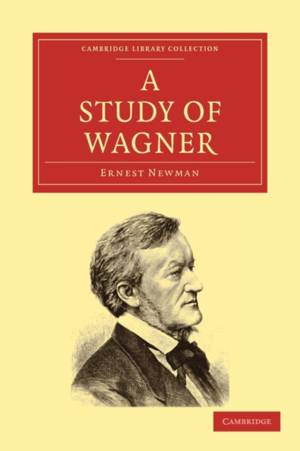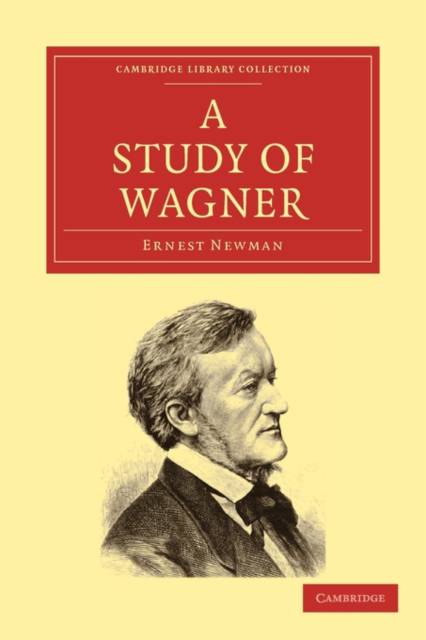
Bedankt voor het vertrouwen het afgelopen jaar! Om jou te bedanken bieden we GRATIS verzending (in België) aan op alles gedurende de hele maand januari.
- Afhalen na 1 uur in een winkel met voorraad
- In januari gratis thuislevering in België
- Ruim aanbod met 7 miljoen producten
Bedankt voor het vertrouwen het afgelopen jaar! Om jou te bedanken bieden we GRATIS verzending (in België) aan op alles gedurende de hele maand januari.
- Afhalen na 1 uur in een winkel met voorraad
- In januari gratis thuislevering in België
- Ruim aanbod met 7 miljoen producten
Zoeken
€ 95,45
+ 190 punten
Omschrijving
This is the first of several in-depth studies of Wagner and his music by the renowned music critic Ernest Newman (1868-1959), leading up to the great four-volume biography The Life of Richard Wagner, published 1933-47. This 1899 work presents a thoroughly researched critical analysis of the composer's aesthetics, philosophy, social and political ideas, and their expression through his musical development and theoretical writings. As Newman states in his introduction, his exploration of Wagner's personality through his works aims to answer the question, 'In virtue of what constitution of brain was he so great a musician?' The book considers all the major music dramas; looks at Wagner's theory of music, poetry and music drama; includes a biographical timeline giving the dates of his compositions, publications and other musical events of the period; and ends by discussing the essence of the composer's character and his contribution to music.
Specificaties
Betrokkenen
- Auteur(s):
- Uitgeverij:
Inhoud
- Aantal bladzijden:
- 426
- Taal:
- Engels
- Reeks:
Eigenschappen
- Productcode (EAN):
- 9781108004718
- Verschijningsdatum:
- 20/07/2009
- Uitvoering:
- Paperback
- Formaat:
- Trade paperback (VS)
- Afmetingen:
- 152 mm x 229 mm
- Gewicht:
- 621 g

Alleen bij Standaard Boekhandel
+ 190 punten op je klantenkaart van Standaard Boekhandel
Beoordelingen
We publiceren alleen reviews die voldoen aan de voorwaarden voor reviews. Bekijk onze voorwaarden voor reviews.









